Cumbria coal mine planning inquiry closes
- Published
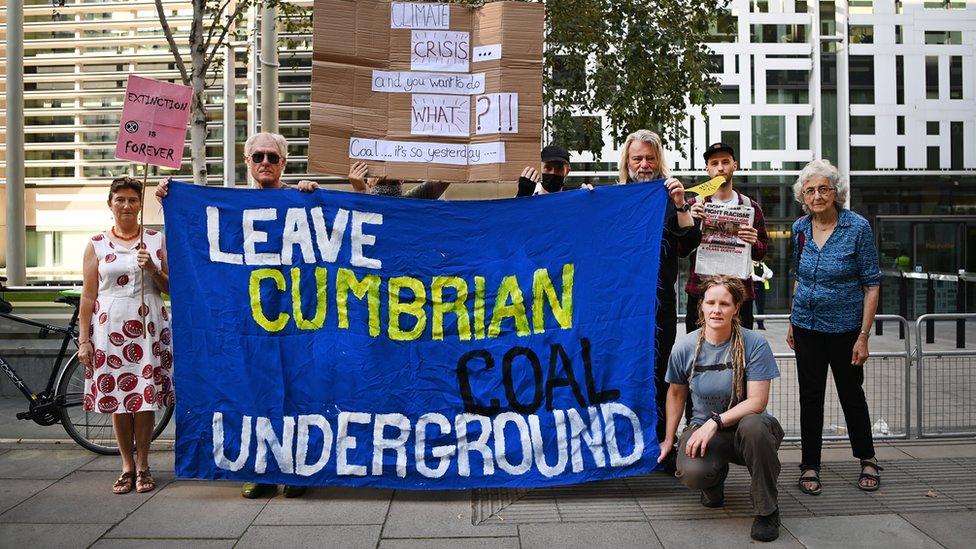
Opponents of the mine have protested outside the Home Office in London as well as the site in Whitehaven
An inquiry into plans for a coal mine off the Cumbrian coast has closed.
West Cumbria Mining wants to mine coking coal, external to be processed at the former Marchon chemical works site in Whitehaven for use in steel making.
Supporters claim it will create jobs and reduce the need to import coal. Opponents say it will have a devastating impact on the environment.
Planning inspector Stephen Normington said he will make his recommendation in late December or early January.
As he brought the four-week-long inquiry to a close on Friday evening, Mr Normington said he could not give a definitive date for when he would pass on his report to the government.
"There will not be a decision this year, I can give no more guidance than that," he told the advocates.
Gregory Jones QC, for the company, had told the inquiry the UK's steel industry will need coking coal "for many years".
He said it would be better for the environment to mine the coal from under the Irish Sea rather than import it from countries like the USA or Australia.
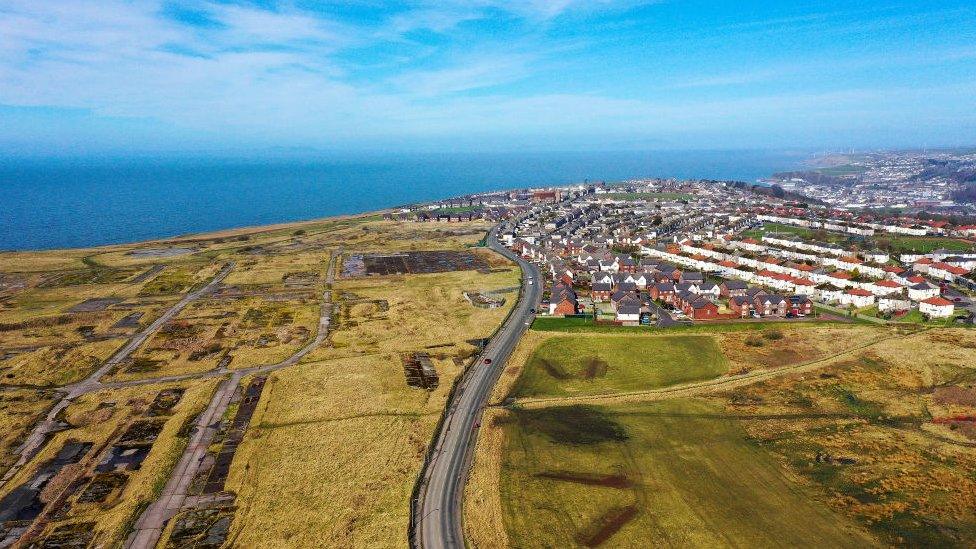
The former Marchon chemical works on the outskirts of Whitehaven is the site of the proposed mine
He also said the mine would create 530 permanent jobs, with a commitment to fill 80% of those using local people.
Opponents, including Friends of the Earth and South Lakes Action on Climate Change, said the country should move away from using coal.
"Every coal mine which is allowed to open, every lump of coal that is burnt, all of it contributes directly to climate change," Paul Brown QC, representing Friends of the Earth, said.
The mine was approved to operate until 2049 by Cumbria County Council in October 2020, but in February the authority suspended its decision.
West Cumbria Mining previously said exploratory works led it to estimate there were about 750m tonnes of "excellent quality" coking coal in the area.
However, the company would be limited by planning conditions to produce no more than 2.78m tonnes a year.

Follow BBC North East & Cumbria on Twitter, external, Facebook, external and Instagram, external. Send your story ideas to northeastandcumbria@bbc.co.uk, external.
Related topics
- Published8 September 2021
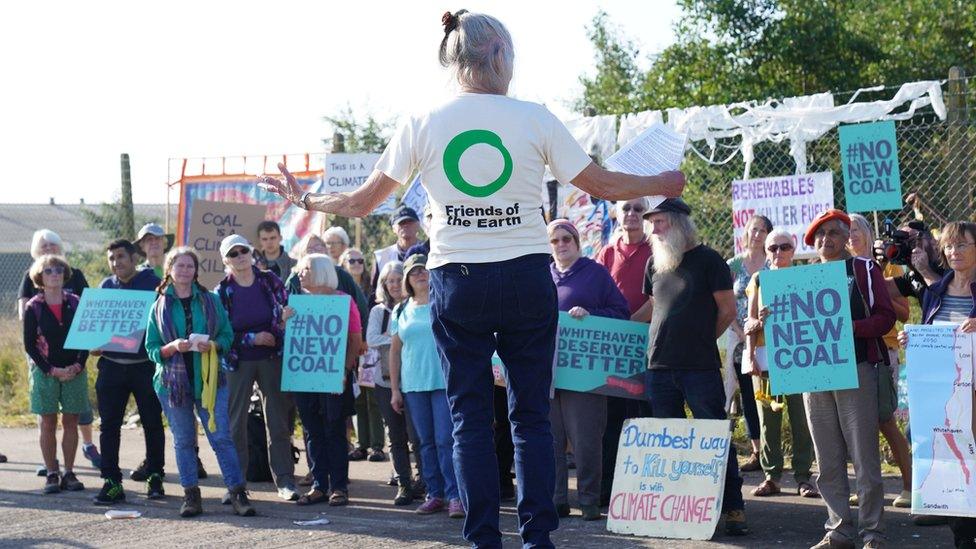
- Published7 September 2021

- Published6 September 2021
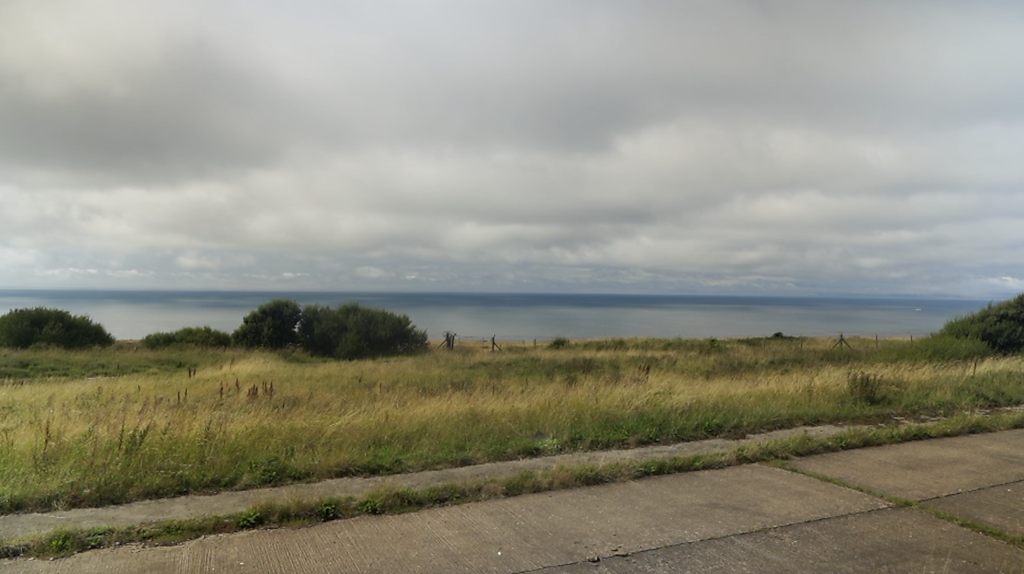
- Published12 March 2021
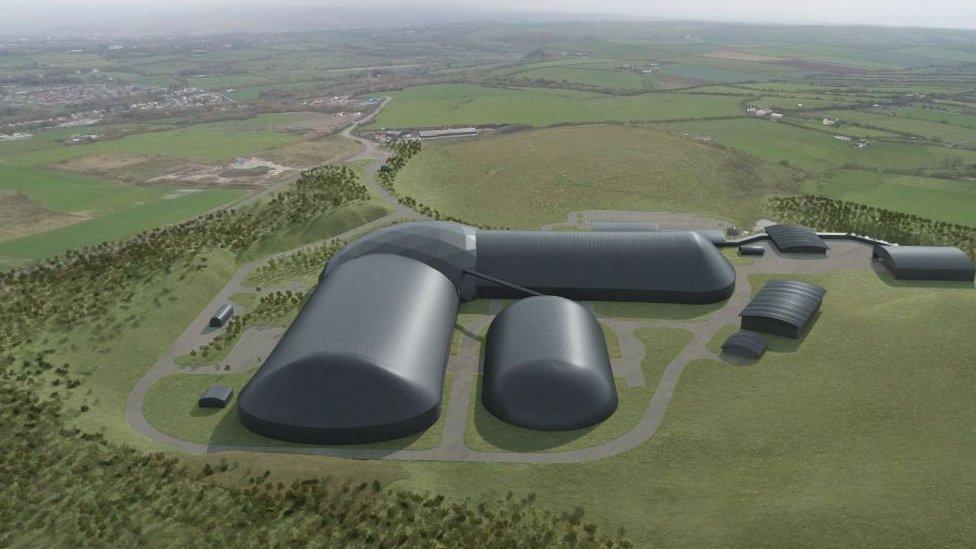
- Published9 February 2021
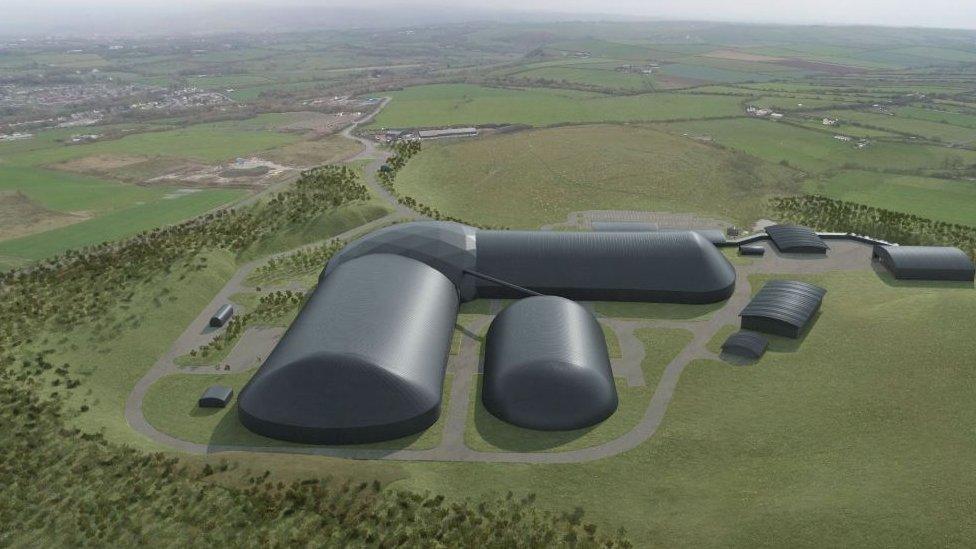
- Published8 December 2022
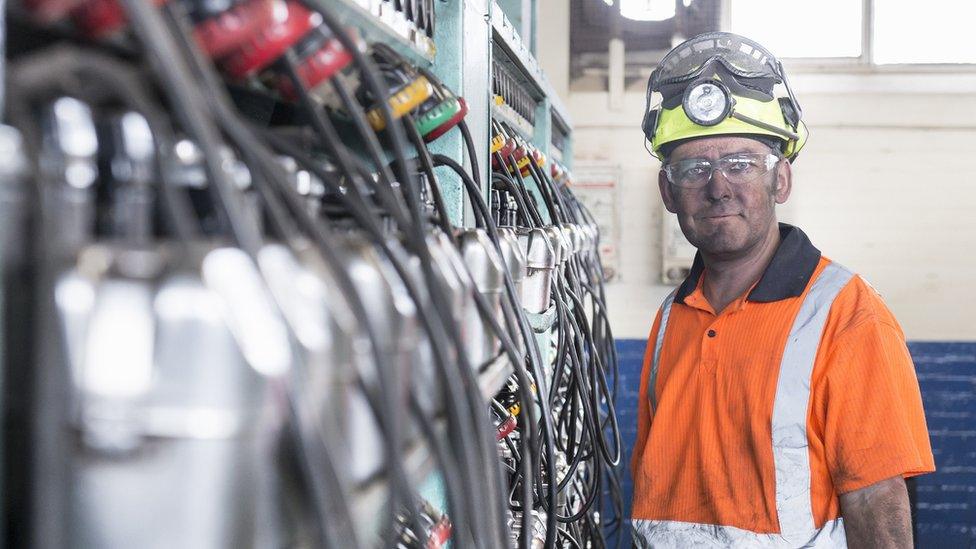
- Published26 February 2021

- Published1 March 2021
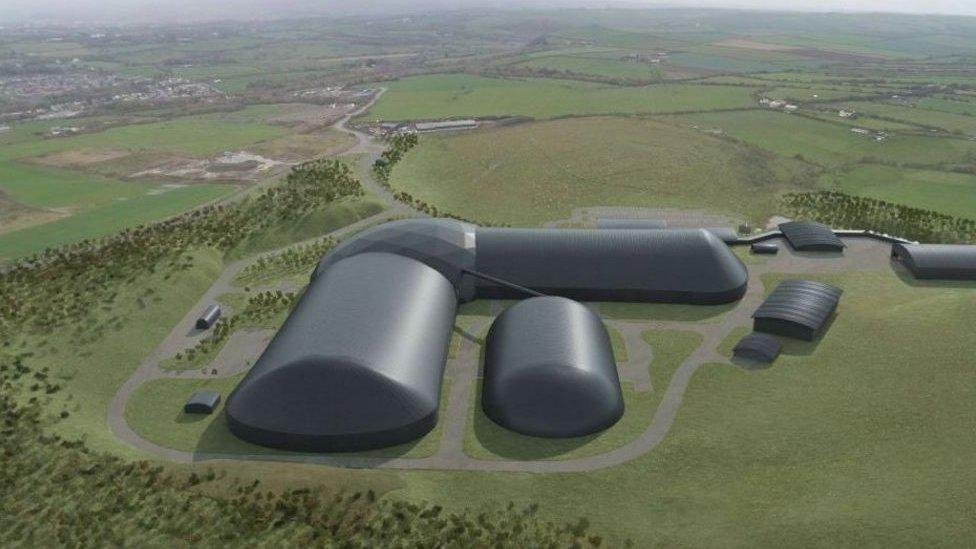
- Published14 January 2021
